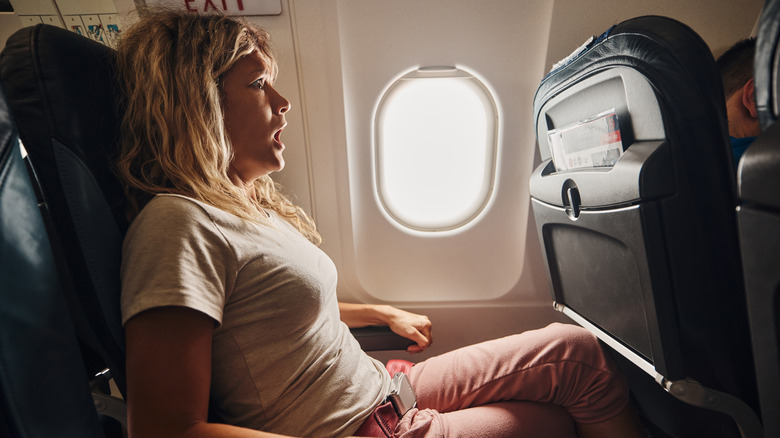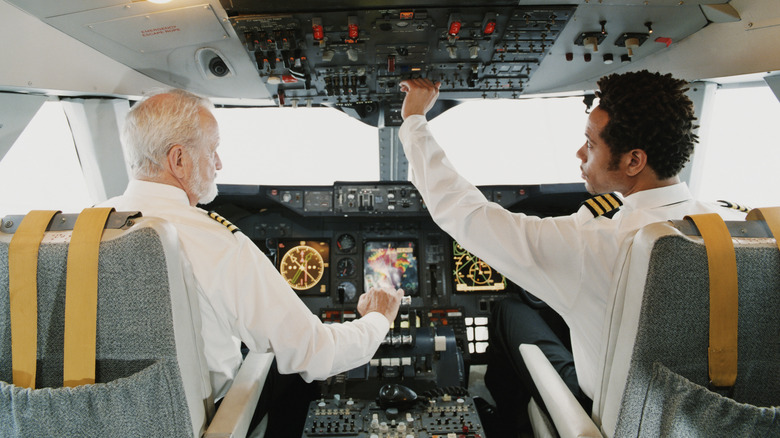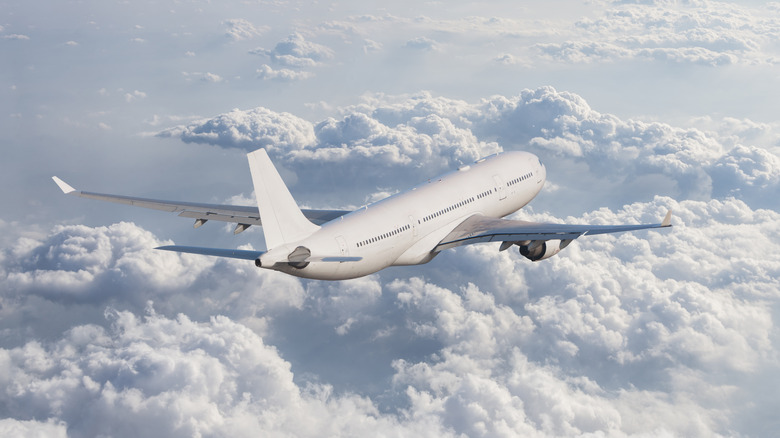What Could Cause An Airplane To Nosedive And How Likely Is It To Happen? A Pilot Tells Us
If coping with turbulence is hard enough, imagine being on a flight that suddenly takes a nosedive towards the ground. That was the reality for passengers on a 2022 United Airlines flight out of Kahului Airport in Hawaii. The plane had just taken off when it suddenly plunged, coming within 748 feet of the Pacific Ocean. No one was injured during the dramatic dive, and the flight managed to continue on its scheduled journey, but officials later determined that pilot error was to blame for the mishap.
In 2024, a similar nosedive took place during a LATAM Airlines flight between Sydney and Auckland. A passenger told NBC News that the pilot made an announcement about equipment failure just after the plane's 500-foot fall. The drop sent fliers out of their seats, and 50 needed treatment for their injuries.
If you already struggle with a fear of flying, these stories might have you questioning your upcoming flights. But do you really need to worry about a sudden nosedive when traveling? To find out, Explore reached out to Brandon Meadows, a commercial pilot and U.S. Navy veteran known as @captain_meadows online. In our exclusive chat, the expert shares that while accidents do happen, a mid-flight free fall is highly unlikely.
Mechanical issues could cause a plane to drop
While the news is known to cover stories of falling planes and windows breaking mid-flight, you shouldn't let the headlines scare you, says Brandon Meadows. "It is a shame that the news and popular culture only show the dramatic and the sensationalized, which in the context of aviation tends to be crashes," the pilot tells Explore. Meanwhile, the flights that go off without a hitch don't receive such attention.
Meadows uses this point to illustrate that deadly plane nosedives are extremely rare, adding that there are a staggering 16 million flights per year in the U.S. "If one flight out of those had a sudden nosedive that proved fatal, that would mean that 99.999993% of flights landed safely that year in the United States, and that doesn't take into account all the other countries that have similar records," the aviation expert explains.
However, when a nosedive does occur, Meadows says that human error is unlikely to be the cause. "This would be very rare, as pilots go through medical exams every year to ensure their health, and most commercial operators (especially the airlines) have two pilots at the helm," he reveals. "Mechanical reasons seem more likely to me to cause a sudden nosedive. There are many parts that hold an airplane together, and while rare, they have been known to fail."
Planes are equipped to prevent crashes
Though mechanical issues are the most likely reason for a plane to nosedive, know that malfunctioning planes are still a rarity in the aviation world. Meadows notes that aircraft must go through regular inspections before hitting the runways, and professional mechanics must comply with strict standards to avoid blunders.
Pilots, too, are required to follow rigid rules, and even if a pilot does make a mistake, planes are designed to correct these errors. The expert explains: "To name one such feature, almost all airplanes are designed with dihedral wings. Without going into the science, what that means is that if you and I were the only two people on board an airplane and we are at cruising altitude in a properly configured aircraft ... [and you] bump the controls, or slam hard on the controls, or in any other way upset the aircraft's attitude, so long as you let go of the controls, the airplane will return to its previous attitude of flying straight and level, and it will do so on its own accord and without autopilot."
With this in mind, Meadows adds that if a plane does nosedive, in most cases, it won't crash to the ground. Instead, the situation will be resolved before the worst can occur. "Proper training and good maintenance practices exist for a reason: Maintenance keeps bad things from happening, and training keeps those bad things (which, again, are rare) from turning into worse things." To follow and learn more about Captain Brandon Meadows, visit his Instagram.


